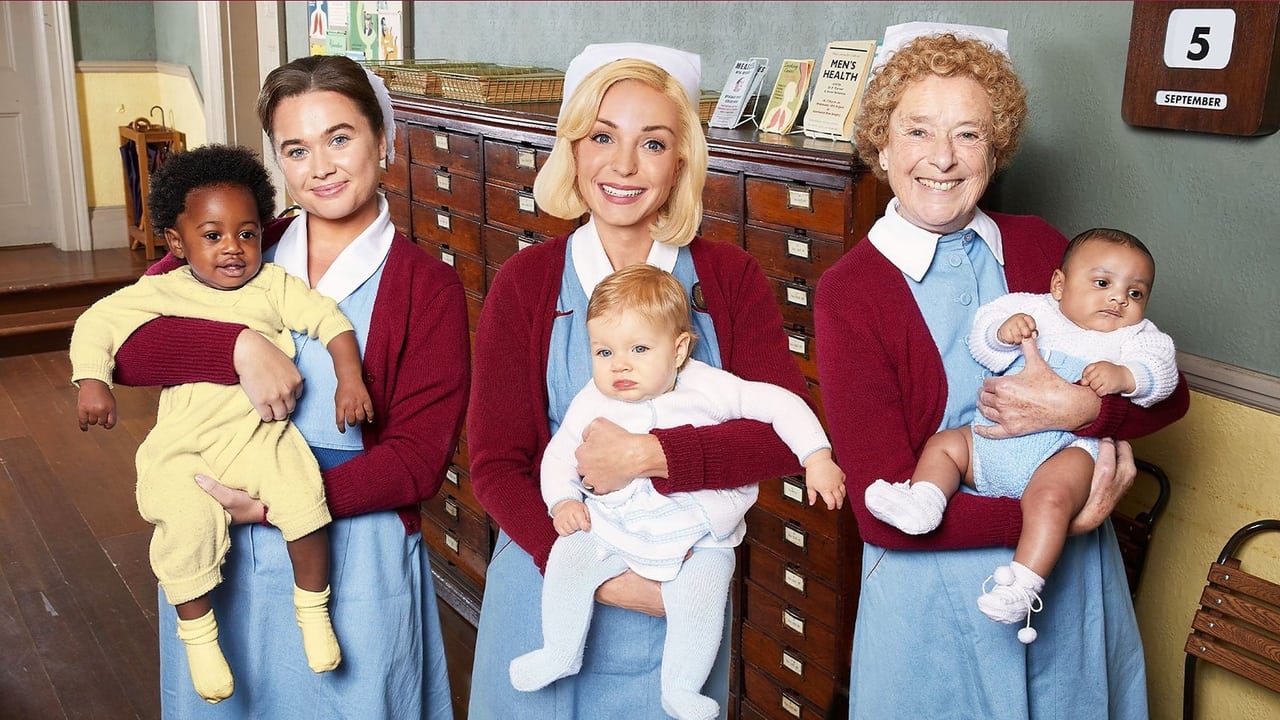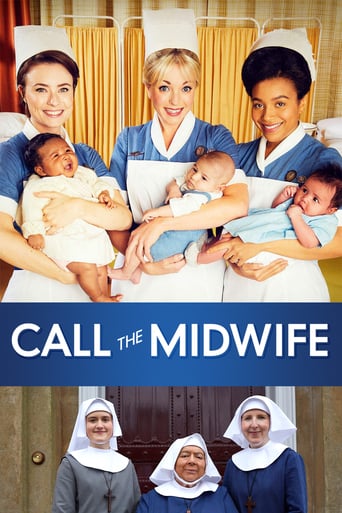

Load of rubbish!!
... View MoreI like movies that are aware of what they are selling... without [any] greater aspirations than to make people laugh and that's it.
... View MoreStrong acting helps the film overcome an uncertain premise and create characters that hold our attention absolutely.
... View MoreThrough painfully honest and emotional moments, the movie becomes irresistibly relatable
... View MoreThe script is made by some apartment script school, butchering a very readable text. The text is concerned with the woman's situation and welfare back in the 1950s after putting things in context, as the 1960s brought the pill, which increased the well being and the life expectancy of women in that part of the World. The script is concerned with lying and painting a rosy look of the life, long live the concerned leaders! The problems abound at every minute. The lovely scene (in the book) when the author comes to the nuns, is completely changed and the characters are different (in the script). This is what low quality education does: poor script writing is one side effect.Apart from butchering the original text for mysterious reasons that dull the drama and lose the humor, the whole thing can be separated in two: mistakes out of stupidity and mistakes out of kissing behinds. The stupidity is just low quality education. No, the man is teached to hold the woman who is giving birth that particular way from the 2000s, when men assisting at birth has become common. The technique did not exist back in the 1950s. The same way as some of the bleeds shown on screen are the sign of certain death in a few minutes, even in 2010s and in a hospital.The worst part is the rear kissing and the cheap nationalist propaganda, none of which is present in the book. The children with a sweater and no pants are nowhere to be seen. East End is a trendy neighborhood with rich people dressing a la mode. The men is specified in the book several times have nothing to do with the babies beyond the point of conception and the income. In this series they can even be supportive. The author specifies the men were not accepted at births. Tough luck, they are well dressed, well groomed, and ready to support the wife in this parody. The doctors are too expensive in the book, in here they can come with everything to make a small Emergency Room in the bedroom. In the book sometimes there is no running water, the toilets are shared, installed downstairs and to a side of the building. So the stench can be terrible and the hygiene not there. There are lice and other parasites. The children are half naked precisely to avoid changing the diapers. Yet in the screen version one of the local women is shocked by the idea of a child pissing in the waiting room.The actors are of low quality. The script is xenophobic. The East Enders are okay with the hospital, is the Spanish woman who can't even speak English who refuses to go to the hospital. The extras move like drones. The clothes are clean, colorful, and new! So a book that could be considered feminist turns into another romantic 'good old times' story when the women were very energetic after 14 hours of work with half the daily needed calories and who loved to give birth and have lots and lots of children from an early age.Contact me with Questions, Comments or Suggestions ryitfork @ bitmail.ch
... View MoreDespite the deviations from the original book by Jennifer worth I truly enjoy watching this programme. As a midwife myself I find it really difficult to watch any TV show that portrays pregnancy and child birth due to the often inaccurate and unlikely events that unfold. Call the midwife is the only programme I can watch that portrays childbirth without shouting and screaming at the TV wishing the researchers had put more effort in.spoiler alert :- The show highlights not only the difficulties faced by maternity services in the 50s but also the development and progression of services with the introduction of the NHS and the move away from home birth and towards hospital deliveries. The deliveries are mostly realistic and show many complications that women face that just aren't written about in other TV shows such as inverted uterus, eclampsia, still birth and babies born with abnormalities. The characters are endearing and the story lines have often left me in tears of sadness and joy. Each episode is an emotional roller coaster. A real pleasure to watch.
... View Morei have not read the book but i adore this show though i admit it stirs up a lot of emotions at times. i love the stories of each character though i have to say i am disappointed that Jenny still narrates after she leaves in Season 3 and that you don't see Chummy in Season 4 though her husband is still a police officer in Poplar...where did she disappear to? and the baby? i am hoping that Netflix will add Seasons 5 & 6 relatively soon! i do like that there has been a lot diversity in characters and personalities/religions/backgrounds. and i like that they do touch on the historical events of the time (i.e.: Fred talking about the Cold War).
... View MoreIt's hard to believe that anyone could be as compassionate and tender as the midwives in Call the Midwife, compassion and tenderness being rare qualities in the increasingly disconnected world of the 21st century. I suspect those qualities are a real incentive for even the casual viewer of this series, which depicts the lives of midwives toiling in the east London of the late 50s- early 1960s. The world of almost 60 years ago was a very different one from today, both from a social and technological standpoint. I'm impressed by the attention to detail in the series, which allows viewers to immerse themselves in the stories, which touch upon issues such as abortion and incest, as well as the then real threats of polio and tuberculosis. More recent stories have even addressed the thalidomide tragedy. The acting is, without exception, top notch, especially that of Judy Parfitt as Sister Monica Joan. I tend to be especially critical of shows that rely on lachrymose sentimentality to further the story. Call the Midwife is at times tender, sweet tempered and, well, nice, but never false as it displays the panorama of the human condition.
... View More